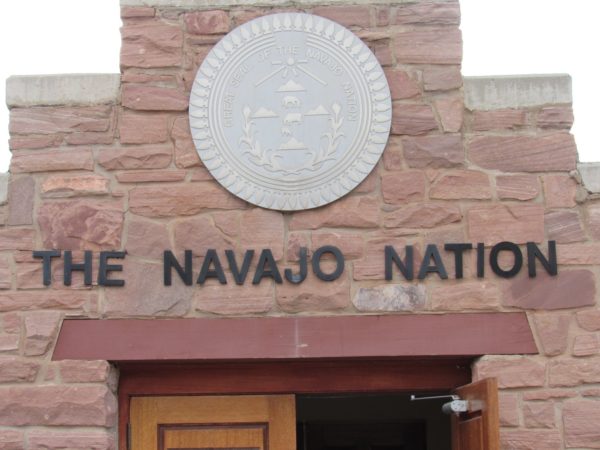
- Details
- By Native News Online Staff
The Navajo Nation has collected $140 million in taxes for Fiscal Year 2024—$29 million more than projected.
Since January 2023, the Navajo Nation Tax Commission has implemented a new approach to taxing contracts awarded to Navajo-owned businesses.
“It’s the highest we’ve brought in so far,” said Effie Edsitty, executive director for the Office of the Navajo Tax Commission. “Our projection was actually $111 million. So we brought in an excess of $29 million, which is extra money for the general funds.”
Edsitty explained that this change is helping ensure Navajo funds stay within tribal lands. She emphasized her commitment to monitoring the Nation’s nine tax types and retaining financial resources for the community.
Navajo Nation President Nygren praised Edsitty’s efforts, highlighting how they help maintain the Nation’s funding.
“We are thrilled to hear that our Office of Navajo Tax Commission, led by Effie Edsitty, is keeping our Navajo dollars in our tribal treasury,”he said. “These taxes have many specific purposes that go to our general fund but also particular efforts, like increasing access to healthy foods through the taxation of junk food.”
Edsitty’s office reported a notable increase in tax revenue, which she largely attributes to “sales tax, non-retail” transactions. This category includes contracts for construction, water lines, power projects, and professional services such as legal and accounting support.
The increase in tax revenue is part of a broader trend. The Office of the Navajo Tax Commission now oversees 5,500 registered taxpayers, primarily businesses operating within the Nation.
“We register anywhere from five to 15 businesses a day, so it is growing,” she said.
This steady growth has led to a demand for additional tax collectors and accountants to manage the expanding tax base.
Looking ahead, President Nygren expects further increases in tax revenue in Fiscal Year 2025 due to American Rescue Plan Act funding for water and electricity infrastructure projects.
Navajo taxes support the Navajo government’s operational needs, benefit enrolled tribal members, and help sustain the Nation’s 4,000-employee workforce.
The Nation’s first taxes—the possessory interest tax and business activity tax—were established in 1978. That same year, two coal companies challenged the Nation’s authority to impose taxes, resulting in a legal battle from 1978 to 1985.
On April 16, 1985, the U.S. Supreme Court upheld the Navajo Nation’s right to tax in the Kerr-McGee case. To commemorate this victory, the Navajo Tribal Council designated April 16 as Navajo Nation Sovereignty Day, later celebrated on the fourth Monday in April.
The Nation now imposes nine different taxes. With the recent signing of the Tobacco Tax Amendment, quarterly tax revenue is expected to rise even further.
President Nygren encouraged Navajo citizens to continue spending within the Nation and registering their businesses.
“The more we can keep our money circulating here, the better it is for all of us,” he said.
More Stories Like This
Native News Weekly (August 25, 2024): D.C. BriefsUS Presidents in Their Own Words Concerning American Indians
Tlingit & Haida Launch New Foundation to Support Education, Wellness
Michigan Attorney General Opens Criminal Investigation into Indian Boarding Schools
Next on Native Bidaské: Julian Brave NoiseCat on the Lumbee Nation’s 140-Year Fight for Federal Recognition
Help us defend tribal sovereignty.
At Native News Online, our mission is rooted in telling the stories that strengthen sovereignty and uplift Indigenous voices — not just at year’s end, but every single day.
Because of your generosity last year, we were able to keep our reporters on the ground in tribal communities, at national gatherings and in the halls of Congress — covering the issues that matter most to Indian Country: sovereignty, culture, education, health and economic opportunity.
That support sustained us through a tough year in 2025. Now, as we look to the year ahead, we need your help right now to ensure warrior journalism remains strong — reporting that defends tribal sovereignty, amplifies Native truth, and holds power accountable.
 The stakes couldn't be higher. Your support keeps Native voices heard, Native stories told and Native sovereignty defended.
The stakes couldn't be higher. Your support keeps Native voices heard, Native stories told and Native sovereignty defended.
Stand with Warrior Journalism today.
Levi Rickert (Potawatomi), Editor & Publisher


